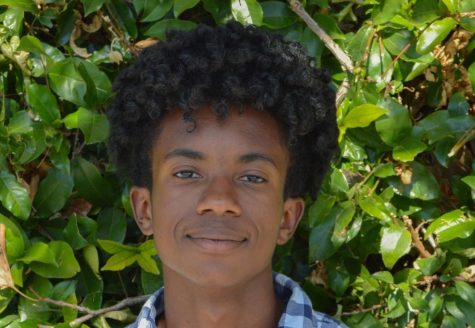Under Pressure
On the three orange and blue plaques hung up in every UPA classroom, students are told to be honest, accountable and to persevere in all of their academic endeavors; however, there comes a point when students may feel that breaking these very values is the only option to achieve success.
“The idea of cheating crosses everyone’s mind,” math teacher Esther Chen said. “But the way that we were brought up deters us from that.”
Most students are met with the idea of honesty while growing up, whether it be from parents or teachers. But while stakes grow as time passes and the consequences for dishonesty might ruin a student’s admission to a university, high schools—including UPA—emphasize the need for students to be honest in their work and to not ride off the successes and efforts of their peers. Yet, there still persists a problem with cheating among high schools, and UPA is no different.
In some cases they have handled, administrators wish to not ruin the academic careers of its students, and thus, punishments for cheating and other forms of dishonesty in the classroom have been fairly tame compared to what is stated in UPA’s Student-Family handbook.
“Cheating will always happen at school to some degree,” Andrew Yau Director of Student Services, said. “The only way to really limit it is to crack down on students that we catch. At the same token, we don’t want to permanently affect that student’s academic record.”
In May 2018, a cheating incident occurred during the AP Biology exam held at UPA. As a result, scores were temporarily withheld until the following August by College Board once the organization detected cheating. Yet, UPA’s only response was the creation of seating charts for future AP tests.
And on April 9, 2019, seniors in PreCalculus were caught texting test and homework answers in an Instagram group chat created at the start of the school year. Class of 2019 graduate Krizel Tomines, also the former Associated Student Body (ASB) president, was required to step down for her involvement. The seniors were lectured during Seminar, given Saturday school and not given credit for all tests that were completed unfairly. Regardless, the teacher allowed those involved to make up those zeros.
“Cheating at UPA, I feel, is pointless,” Yau said. “I went to a high school where you do bad on a test, that’s it. But at UPA, if you do bad on a test, teachers will let you make things up or redo an assignment. So it really behooves a student to do well on an assignment.”
Then why is it such a problem at UPA?
Is it a pressure to do well? Is it the need to do well? A common explanation would be the latter. Despite resources available to them, students can often be met with the issue of being overwhelmed, and thus, cheating on a test or assignment they were unprepared for becomes a favorable solution. Students ask earlier periods what was covered, or in some specific cases, obtain test answers.
“I think when students cheat, they don’t know the content and were too scared to ask for help. And then they just end up cheating because they say ‘I have to do well,’” Chen said. “Most of the time students cheat they are capable, but they get lazy and fall behind.”
Or rather, students could be placing pressure on themselves.
UPA prides itself at being an academically rigorous school. And at a tough school, academic honesty is stressed by administrators and teachers in order to help students succeed in the rigorous work environment fairly.
In hallways where students compare SAT scores or in classrooms where people look at each other’s tests once handed back, the pressure to surpass the competition starts to crawl to the forefront of everyone’s mind.
“You know how people compare test scores after tests for days on end?” Palmer, a Class of 2019 graduate who has been granted anonymity, said. “You don’t want to be the one kid where the teacher says ‘the lowest score was a 47’ and you are that 47.”
UPA’s mission statement could be summarized in a few words, “send everyone to a four-year college,” and so far, the school has been doing just that, with a near-perfect graduation rate worth bragging about. But even with thousands of universities across the nation to attend, UPA students will usually thrive to be at the most prestigious. The wanting to go to an Ivy league or a UC places stress on students that inspires cheating when in reality, that is not what they should aim for.
“There’s ten million colleges out there you’ll find one that fits for you,” Yau said. “[And] you’ll work hard and you’ll be successful.”
The need to be the best at UPA is an unnecessary pressure placed on the student body, but rather than feel the need to be dishonest and cheat to succeed, UPA believes that students should do everything they can to go to a good school that fits them personally, not what others deem to be prestigious. Not attending Oxford, Yale or Stanford does not make students worthless, as no matter what, honesty is the best policy.
“Maybe UPA can do a better job getting that message out,” Yau said, “I know teachers aren’t saying ‘UCLA or fail,’ but I think a lot of students internalize that.”

Senior Kristian Crowther, one of Aquila’s Co-Editors-in-Chief, is currently in his third year of journalism. In his first year as a student journalist,...










Nicole Rendler • Sep 23, 2019 at 8:41 pm
Kristian, I truly LOVED this article. Some of your best work, your writing just keeps getting better and better. So proud that you got it published and so happy to read such great work. Keep it up, EIC!!!
-Nicole